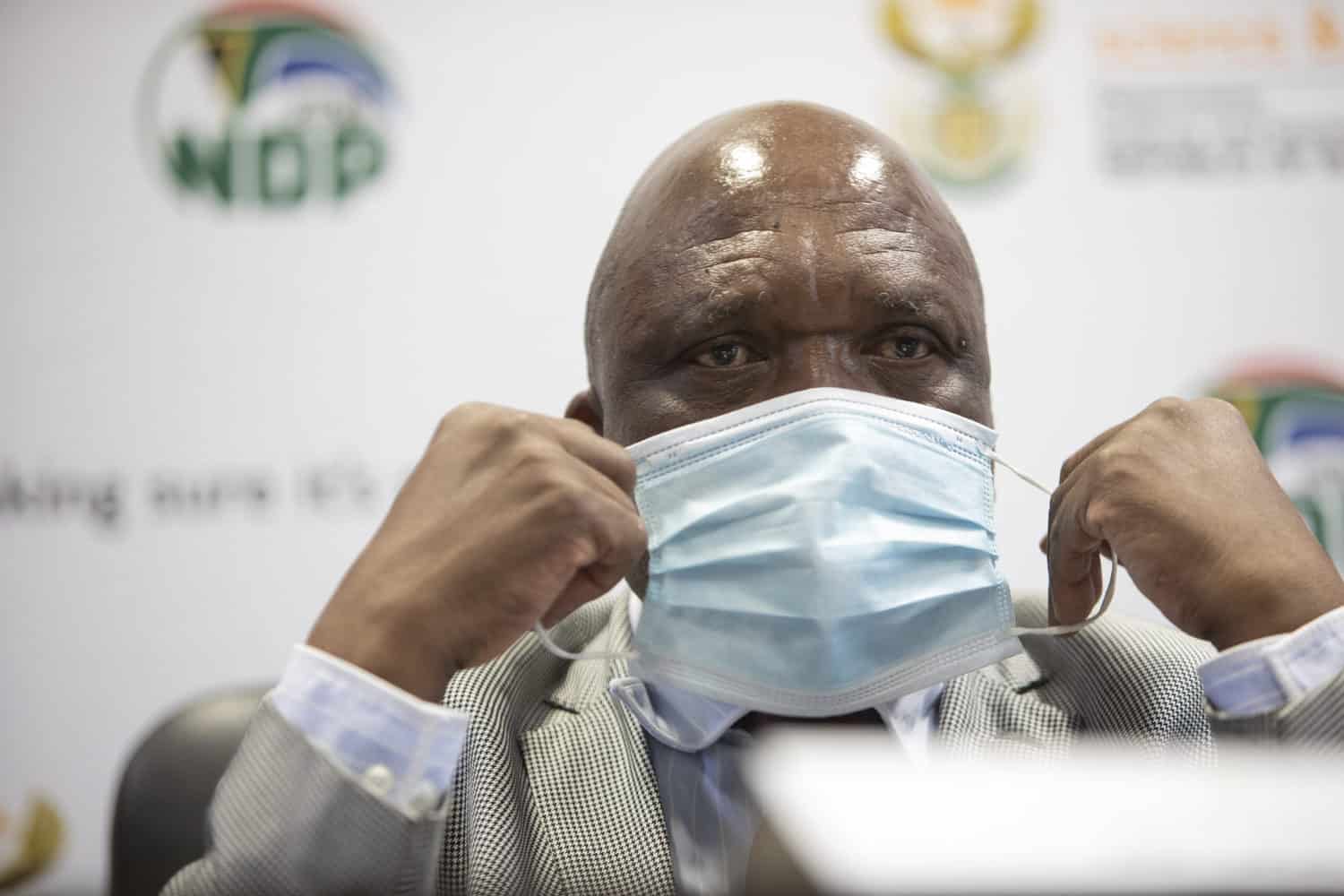The regulations will ensure there are enough protective measures in order to manage future pandemics.

Minister of Health Dr Joe Phaahla during a visit to South Africa’s vaccine research sites on 11 February 2022 in Cape Town. Picture: Gallo Images/Daily Maverick/Leila Dougan
The public can now have a say on the new health regulations as government aims to move the country out of the national State of Disaster.
The Department of Health on Wednesday afternoon published new draft regulations, which will be part of the National Health Act, for public comment.
The regulations will ensure there are enough protective measures in order to manage the current Covid-19 pandemic as well as future outbreaks.
“The proposed regulations aim to introduce control measures which include the surveillance and the control of notifiable medical conditions; public health measures in points of entry; management of human remains; and regulations relating to environmental health,” the department said in a statement.
Here are the key proposals of the new regulations:
- The attendance of indoor gatherings without proof of vaccination will be limited to only 1,000 people and 2,000 for outdoors, with social distancing of at least 1 metre.
- There are still restrictions on night vigils and after-funeral gatherings;
- The indoor and outdoor gatherings will be may be occupied up to 50% of the venue capacity provided there is product or of a valid vaccine certificate; practice of social distance of at least one metre and compulsory wearing of mask.
- All people entering or exiting South Africa during the pandemics, should present negative polymerase chain reaction (PCR) test results not older than 72 hours, in the event that they do not have full vaccination certificate.
- Face masks will be required in an indoor gathering in a public place, when using public transport and to enter a public premises.
Government, however, will still have the discretion to decide on other restrictions such as curfew, sport activities, lockdowns, economic activities, the sale of alcohol, among others.
The draft rules also lay out the requirements for self-isolation, as opposed to being directed to a government facility.
ALSO READ: SA health experts call for face masks and other Covid restrictions to be dropped
All of the proposed regulations will be implemented within the national Department of Health once approved, and with the support of some of the public entities reporting to the department.
The regulations will not be tabled before Parliament since it is subordinate legislation, which Parliament has already delegated to the Minister of Health, according to the department,
South African citizens have 30 days – until 15 April, which is the day the State of Disaster will come to an end following the latest extension – to share their thoughts on the regulations.
Disaster Management Amendment Bill
The publication of these new regulations comes after the Disaster Management Amendment Bill was rejected by Parliament’s Portfolio Committee on Cooperative Governance and Traditional Affairs (Cogta) this week.
The Bill, which was first introduced by Freedom Front Plus (FF+) MP Pieter Groenewald in February 2021, was not adopted by the committee following a majority vote.
According to the committee’s chairperson, Fikile Xasa, MPs “felt that the current accountability and oversight mechanisms provided in the Constitution are sufficient to address the gaps identified in the Bill”, among other reasons.
READ MORE: Do not end the state of disaster yet, says top doctor
The Bill would now go to the National Assembly for a debate.
MPs in the National Assembly will vote on whether to pass the Bill after the debate, and proceed to the select committees for discussion.
It will then go to the National Council of Provinces (NCOP) for a debate and vote, before it is sent to President Cyril Ramaphosa for approval.
The Bill could see some major changes to South Africa’s State of Disaster and Covid-19 lockdown regulations if it is signed into law by the president.
The proposed amendments will affect the Disaster Management Act of 2002.





